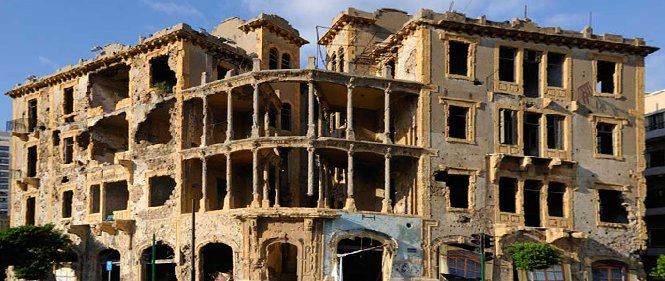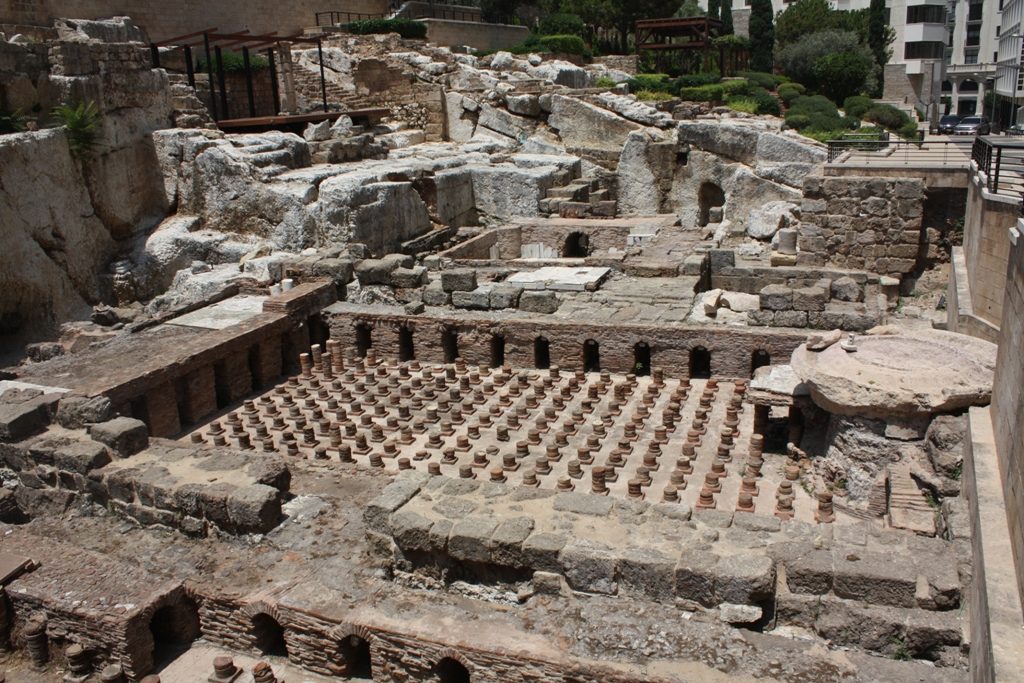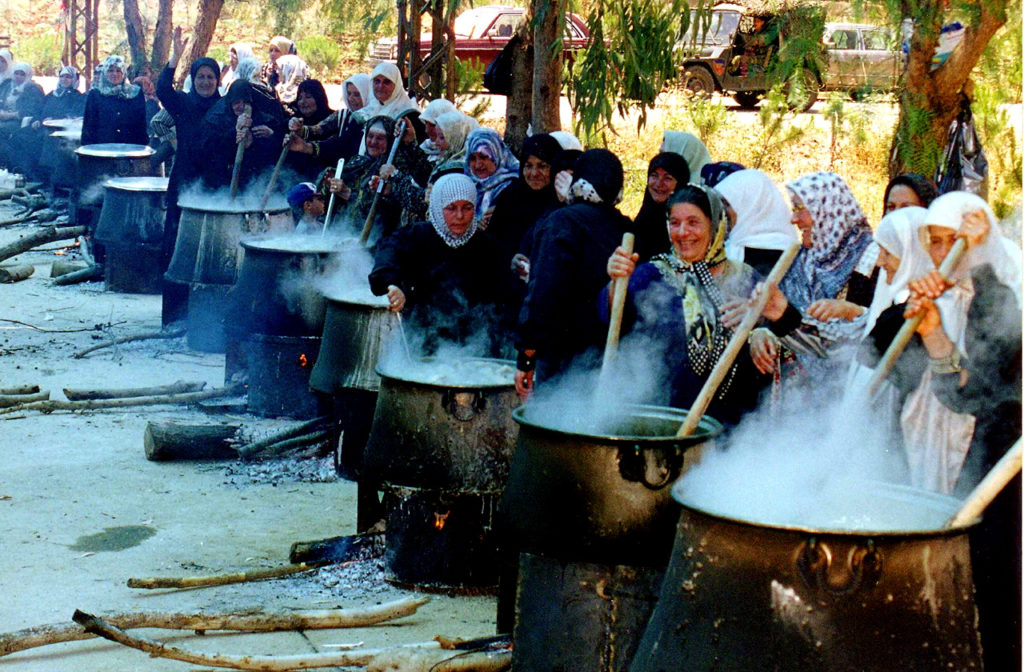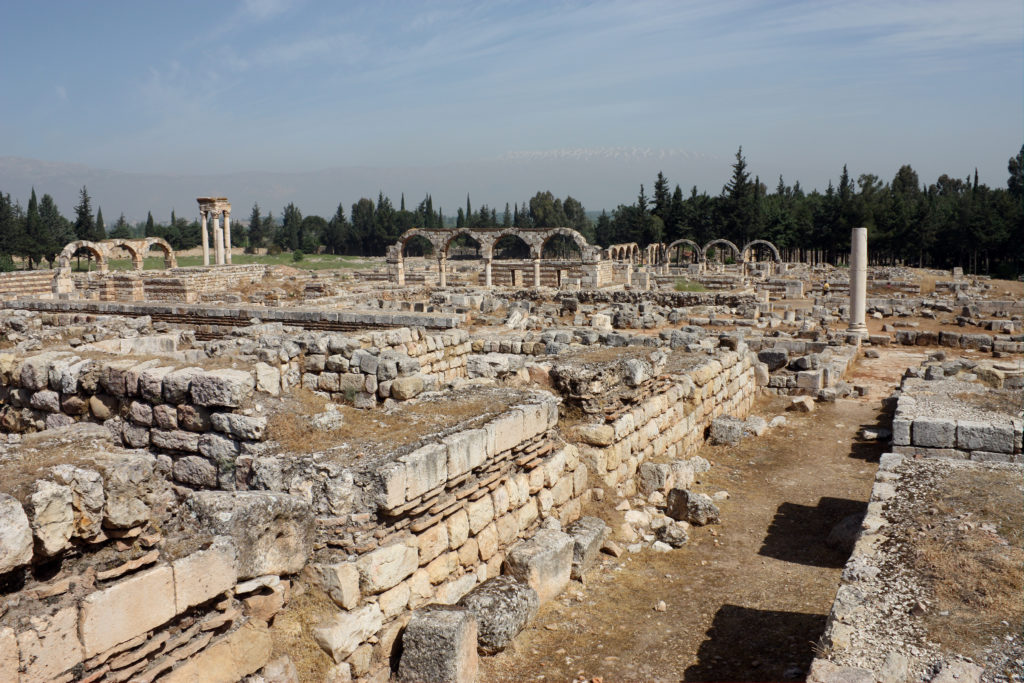-
National Trust of Lebanon? (Weekly blog, 21 August 2016)
Posted on August 22, 2016A blog by Catherine Leonard, INTO Secretary-General
This week, I have been helping our INTO Strategic Advisor for Lebanon, Jennie Hartley, with an exciting new project proposal. To be fair, she has done all the work (for which we’re hugely grateful) and I’ve just been chipping in here and there!

Facade of the Barakat building before renovation, Beirut © Elie plus, via Wikimedia Commons
Jennie writes: “Lebanon is country scarred by conflict. The 15-year civil war followed by the Israeli incursion and now besiegement by Daesh (ISIS) and Al Nusra Front has led to deep sectarian divides throughout the country. The signs are everywhere: from the 400,000 Palestinian refugees to the 1,100,000 Syrians (the greatest number of refugees hosted per head anywhere in the world), to the political stalemate leading to no President, almost no new laws, no senior appointments, and no new Generals since 2014, to 1 in 4 in poverty and the unapologetic destruction of 5,000 years of history to make way for life-giving economic industry.
And yet Lebanon is a place of unique beauty: of sprawling cedar forests, of the largest Roman ruins in the world, of crusader castles and the world’s oldest churches and mosques, of ancient people groups – including the last major Christian community in the Middle East, of Alpine mountains, olive groves and grape vines, and of 5 World Heritage Sites and the birth of the alphabet. Lebanon is a unique place.”This is why INTO has teamed up with the American University of Beirut (AUB) to explore the idea of establishing a National Trust of Lebanon. AUB has conducted pioneering research in rural areas of the country to identify heritage sites and skills worthy of protection. Each is currently being protected locally, by small groups of committed local volunteers, but few have become economically sustainable.

Roman Baths, Beirut © A.K.Khalifeh
“What these volunteers said they need is national coordination. The current legal system offers no real protection for any site younger than 1750AD, it is not possible to get a mortgage or finance to renovate or restore any old property, there is no overwhelming public support to protect heritage, and there is no centrally available tool kit or training to help those committed to protecting heritage”, says Jennie.
And this is where we come in! Our project bid seeks to mobilise skills and experience from across the INTO network (the programmes of the Indian Trust for Rural Heritage and Development and the Cross-Cultural Foundation of Uganda both immediately sprang to mind during initial discussions, amongst many other INTO member organisations) and establish the first National Trust in the Middle East!

Traditional Soap Making, by © Lebanon Ministry of Tourism
The project brings together heritage sites, skilled craftsmen and interested individuals (members/supporters) into a national platform for heritage protection in Lebanon, which we will use to train local heritage protectors, build public awareness, and advocate for national change to the planning and finance system.
A key outcome of the project is to learn and share lessons across the INTO network and with teams in Iraq, Jordan, and Syria, so that when the project succeeds, we can replicate the pilot in a second country.

The Umayyad city of Anjar (Lebanon), seen from the palace © Guillaume Piolle, via Wikimedia Commons
Jennie says “In the long run we hope to see a transformation of the Region’s approach to heritage protection. Within Lebanon this would mean a sustainable financial model, legal protection, and dozens of national and hundreds of local heritage sites, hundreds of skilled craftsmen, thousands of volunteers, and tens of thousands of members equipped and committed to the protection of Lebanon’s heritage.”
I am so excited about this project. The next challenge is to find the funding to move forward with this ambitious plan … Watch this space!

 44 (0)20 7824 7157
44 (0)20 7824 7157![By Monzer Bouwadi (Own work) [CC BY-SA 3.0 (http://creativecommons.org/licenses/by-sa/3.0)], via Wikimedia Commons](https://ccanadaht1.com/wp-content/uploads/2016/08/From_the_CEdar_forst_and_snow_to_Beirut.jpg)